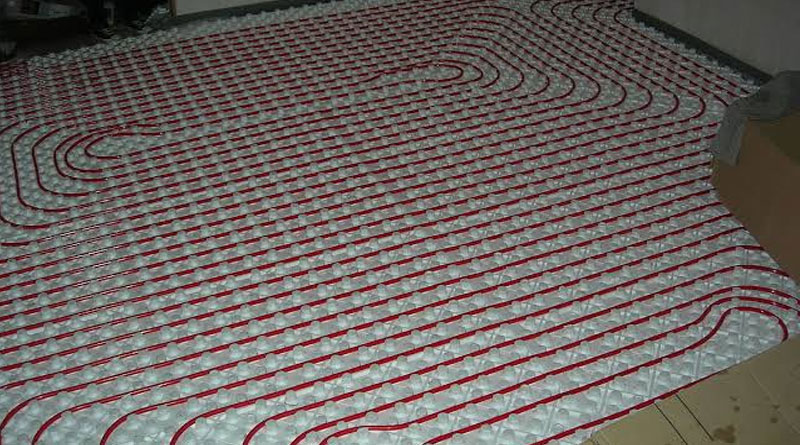Before You Buy a Radiant Heating System
Installing a radiant heating system should not be taken lightly. There is a lot of research that should be done to ensure that you get the right system that will complement both your home and your heating needs. Here are just a few questions that you should ask yourself before deciding which type of radiant system you wish to install or if you even want to install one at all:
Do I want my new radiant heating system to be the sole source of heat for my home? If so, you will need to consider a hydronic system that uses preheated water to heat your home through a series of pipes laid beneath your sub floor. While there are other types of radiant systems that use energy sources such as electricity, air or wood, these systems may not be efficient enough to heat your entire home, unless the house is designed from the start to be heated completely with such a system. These are best used as a supplemental heat source or to heat certain areas of your home.
How much construction to install a new radiant heat system?
Hydronic heating systems are best installed in new constructions due to the fact that the pipes needed to circulate the heated water throughout your home are installed in a bed of light concrete below your sub floor (though they can be installed underneath a wood floor, this is not the best way to. While new technology has made it possible to install these systems in existing homes, the installation usually involves a major remodeling project. Electric systems, on the other hand, can be installed on top of your existing sub floor directly below your tile or carpeting.
What type of flooring will I install over my radiant heat system?
Since a radiant floor heating system heats your home by radiating heat through your floors and into your home, the type of flooring that you place over the system is very important. Flooring, such as ceramic tile, will heat quickly, hold onto the heat, and transfer it readily. Carpet and vinyl, on the other hand, can work as insulators and keep the heat trapped beneath the sub floor. If you must have carpeting, choose a floor covering that will allow the most heat through possible.
What type of energy source will heat the water for my hydronic radiant heating system? As you already know, hydronic systems use heated water to warm your home but how does that water get heated? The answer lies in a boiler system that is powered by one of several ways including gas, oil, electric, solar power or geothermal power.
How much maintenance do you want to perform on your radiant heating system? Hydronic heating systems are very intricate. They require professional installation and upkeep. Electric systems, though, can be easily installed by any homeowner and require little to no maintenance.
As you can see from just these few questions, there is a lot to consider when choosing and installing a radiant floor system. The upside is that one of these systems can keep you comfortable for years to come and can on average save you up to 40% of your current traditional heating bill

